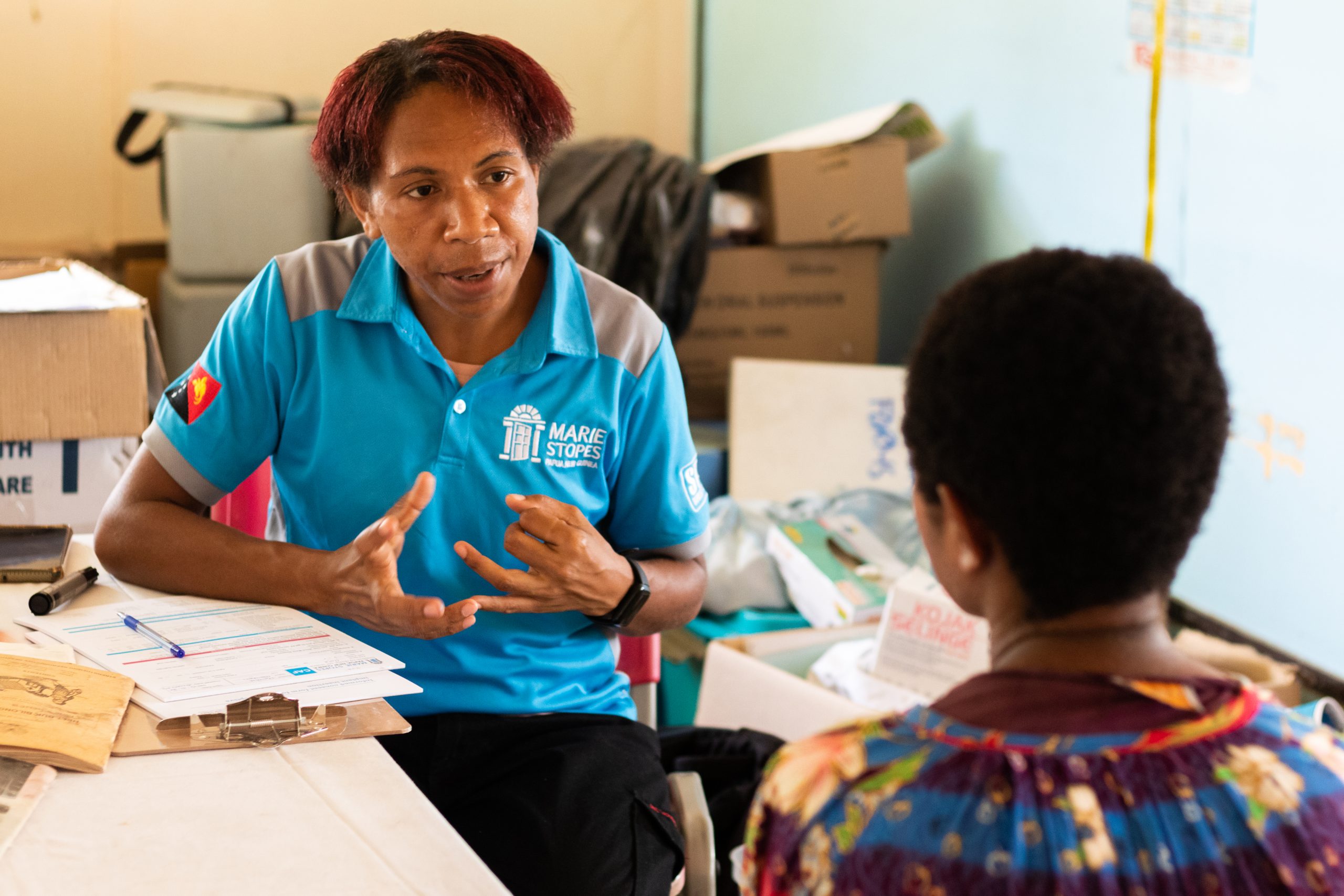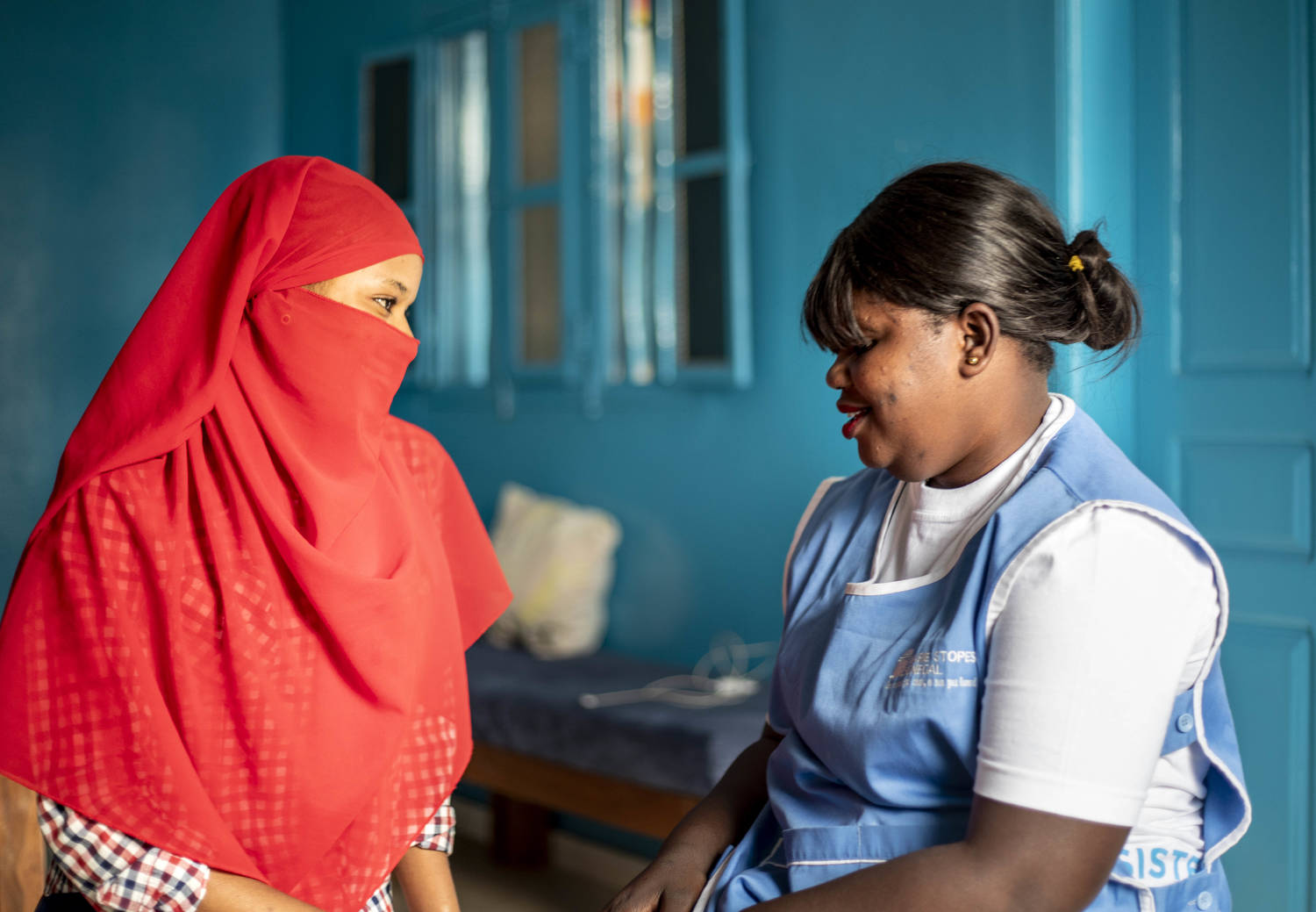On 24 January, President Trump reinstated the Mexico City Policy – also known as the Global Gag Rule – cutting U.S. aid funding to any international organisation that provides, advocates for, or even mentions abortion. Implemented by every Republican president since Ronald Regan, the Global Gag Rule has devastating consequences: not just for safe abortion care but for sexual and reproductive healthcare more broadly. Under every version of the policy, millions of women and girls in some of the world’s poorest countries miss out on contraception, abortions, sex education and more. These losses cost women their health, freedom and even their lives.
In this article, I outline why the team and I at MSI Asia Pacific – part of the global MSI Reproductive Choices partnership – will remain steadfast in our commitment to these women and girls. We have never and will never sign the Global Gag Rule, and we will continue to serve those who most need our services. This includes advocating tirelessly for reproductive choice.
The impact of the Global Gag Rule.
The impact of this expanded Global Gag Rule will be profound and wide-reaching. As a result of not signing the GGR, MSI loses $14m in USAID funding. This loss will result in 2.6 million people losing access to MSI-supported sexual and reproductive health services. Around 60% of these women and girls say they have nowhere else to go for this essential healthcare.
For example, MSI’s programmes in Zimbabwe (Population Services Zimbabwe or PSZ) will lose 41% of its donor funding as a result of the GGR. PSZ currently provides one fifth of all Sexual and Reproductive Health and Rights (SRHR) services in Zimbabwe. USAID funding supports outreach teams to travel to the most remote parts of Zimbabwe to provide free contraceptive services to women who have little to no other options. This loss of USAID funding will result in 1.3 million women losing access to SRHR services, leading to 461,200 unintended pregnancies and 1,400 maternal deaths.
The Global Gag Rule also has a silencing effect, with partners concerned that their US funding could be taken away if they even meet with MSI or other abortion providers. For example, during Trump’s last presidency we witnessed a wider “chilling effect”, whereby partners stopped referring women to MSI for abortion care, even in cases permitted under the policy – such as rape, incest, or when a woman’s life was at risk – because partners feared a loss of their funding. Advocacy and partnerships were also jeopardised, with colleagues excluded from key policy meetings.

Image: MSI in Papua New Guinea. Source: MSI AsiaPacific.
Is the worst yet to come?
Since the Global Gag Rule was reinstated on January 24, the situation has deteriorated rapidly, with further attacks on global health. USAID is set to be rolled into the State Department, threatening the future of the largest funder of global health efforts, including family planning and reproductive healthcare.
Hours after his inauguration, President Trump signed an executive order to commence US withdrawal from the World Health Organisation. US defunding of the UNFPA is also considered likely – a further blow to gender equity and reproductive rights. The insidious ‘Project 2025’ further recommends defunding UNESCO, UNWRA, and UNDP, UN withdrawal, and drastic reductions to peacekeeping and NATO. If these recommendations are implemented, they will devastate the entire global health system.
The US State Department has also announced that the US is rejoining the Geneva Consensus Declaration. This anti-sexual and reproductive health rights political statement manipulates ‘family-first’ language to undermine sexual and reproductive health and rights. Alongside the global rise of the far right, we anticipate a surge in anti-rights and anti-gender groups – which will have material consequences for women’s health and gender equity.
Worryingly, the emboldening of anti-rights groups, the erosion of global health and human rights, and the kneejerk disengagement from multilateralism may be entrenched well beyond Trump’s term. Beyond the direct impacts on our international programs and operations, the long term effects will not just be felt on reproductive and other healthcare services but will destabilise entire communities, societies and economies. As we have long known, the health and resilience of our global society depends on the health, safety and freedom of women and girls.
How we – and the global community – can respond with action and resilience.
We know the challenges ahead are numerous and critical. But we must remain firm in our values, purpose and energy. When united, choice advocates are capable of enormous impact. MSI will be there to step in wherever we can, doubling down on our efforts to hold the line on sexual and reproductive health and rights, including providing healthcare where it’s needed most. However, to do so, we must work with strategic partners at the global, national, and local levels to strengthen the movement’s resilience, tenacity, and efficiency. In particular, NGOs, national governments, donors and partners must work together to:
1) Galvanise leadership to champion SRHR. We urge like-minded policy-makers, funders and leaders to underscore commitments to gender equality and SRHR and provide a safe space for NGOs in countries facing constraints and pressure.
2) Sustained, diversified and flexible funding. Additional resources are critical to replace the loss of USAID funding and ensure uninterrupted SRHR access. Targeted support for the most marginalised communities and impacted issues is critical; and
3) Partnership for safe SRHR spaces. Defending frontline health workers, human rights defenders, and advocates is essential to protecting continued access to safe and quality abortion access. MSI is increasing our investment in protecting the human rights of those defending SRHR and building our internal and external resilience.
Finally, we must work together to elevate the voices of Global South SRHR and human rights defenders as critical leaders and champions.
————————————————
 Merewyn Foran is the Executive Officer, MSI Asia Pacific. The MSI global mission is to provide the reproductive choices people need to determine their own futures, by fighting to ensure everyone can access contraception and abortion. Merewyn leads MSI Asia Pacific’s efforts in the region and beyond in advocacy, income generation and project grant management. Merewyn brings her two decades of experience from across the not-for-profit sector including at World Vision, RSPCA, Hanover Welfare Services and Hagar Australia to achieve this mission. Merewyn’s experience is in executive leadership, fundraising and philanthropy, governance, operational management, communications and stakeholder engagement. Merewyn is passionate about leading high performing teams that make a difference in our world, particularly in some of the most disadvantaged communities globally. Merewyn has served on the ACFID Code of Conduct Committee and is an ACFID Board Director.
Merewyn Foran is the Executive Officer, MSI Asia Pacific. The MSI global mission is to provide the reproductive choices people need to determine their own futures, by fighting to ensure everyone can access contraception and abortion. Merewyn leads MSI Asia Pacific’s efforts in the region and beyond in advocacy, income generation and project grant management. Merewyn brings her two decades of experience from across the not-for-profit sector including at World Vision, RSPCA, Hanover Welfare Services and Hagar Australia to achieve this mission. Merewyn’s experience is in executive leadership, fundraising and philanthropy, governance, operational management, communications and stakeholder engagement. Merewyn is passionate about leading high performing teams that make a difference in our world, particularly in some of the most disadvantaged communities globally. Merewyn has served on the ACFID Code of Conduct Committee and is an ACFID Board Director.
MSI Asia Pacific is part of MSI Reproductive Choices, a global organisation dedicated to ensuring everyone has the reproductive choices they need to determine their own future. Operating across the Asia Pacific region, MSI works to expand access to high-quality contraception and safe abortion services, advocate for reproductive rights, and strengthen health systems to support sustainable change. Through partnerships with governments, NGOs, and local communities, MSI Asia Pacific delivers life-changing healthcare, particularly for women and girls in underserved areas. The organisation is committed to empowering individuals, reducing barriers to care, and advancing gender equality across the region.
Feature photo: MSI in Senegal. Credit: MSI.
